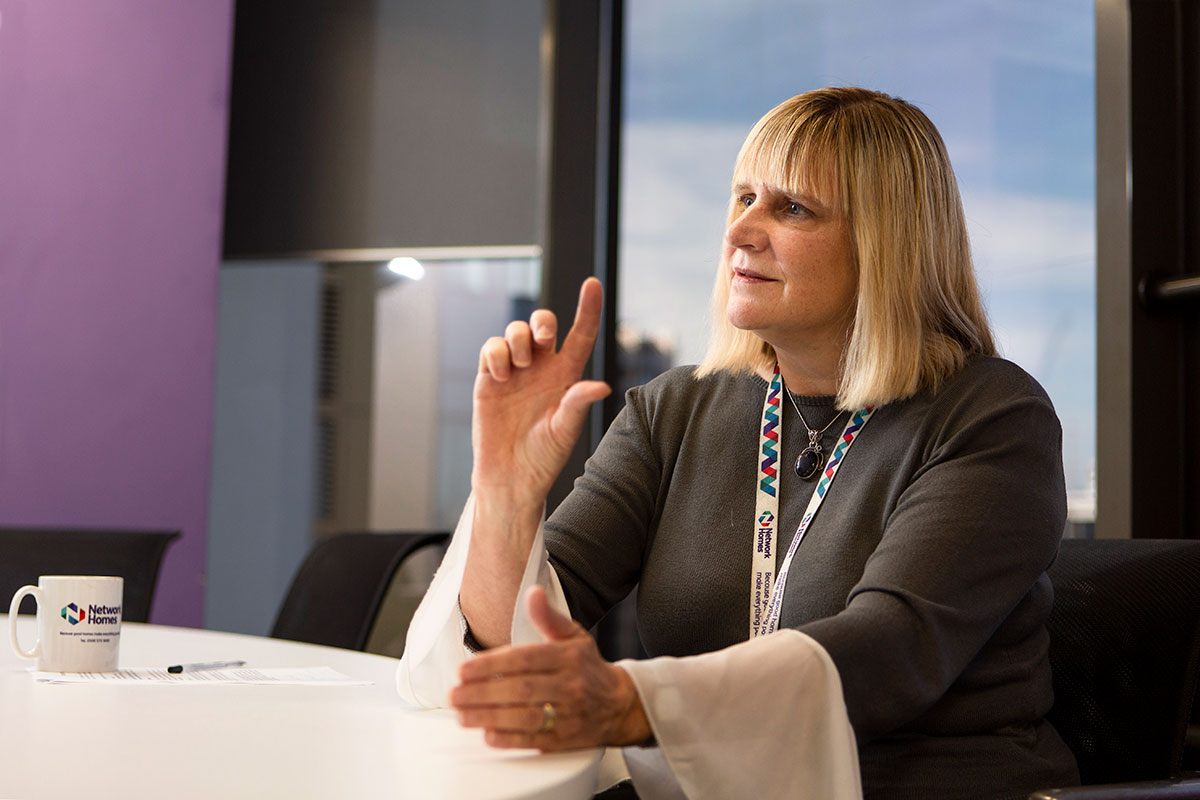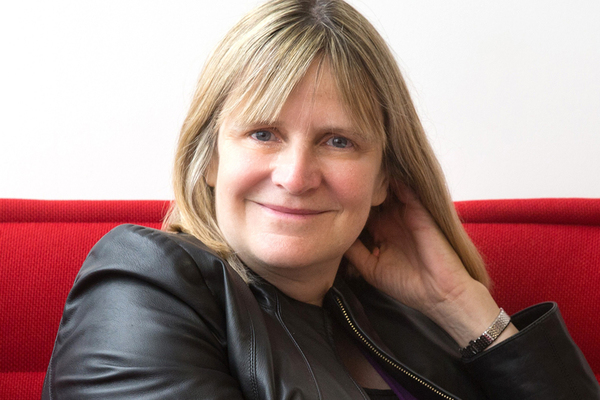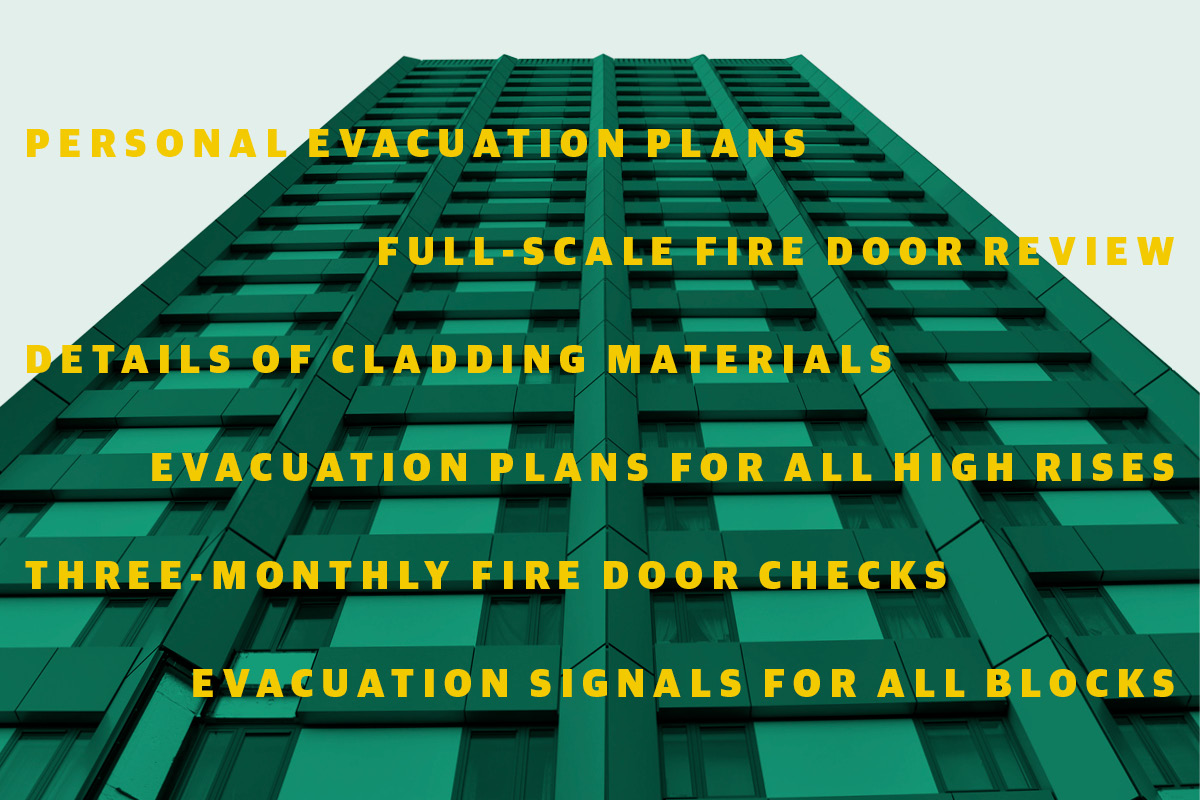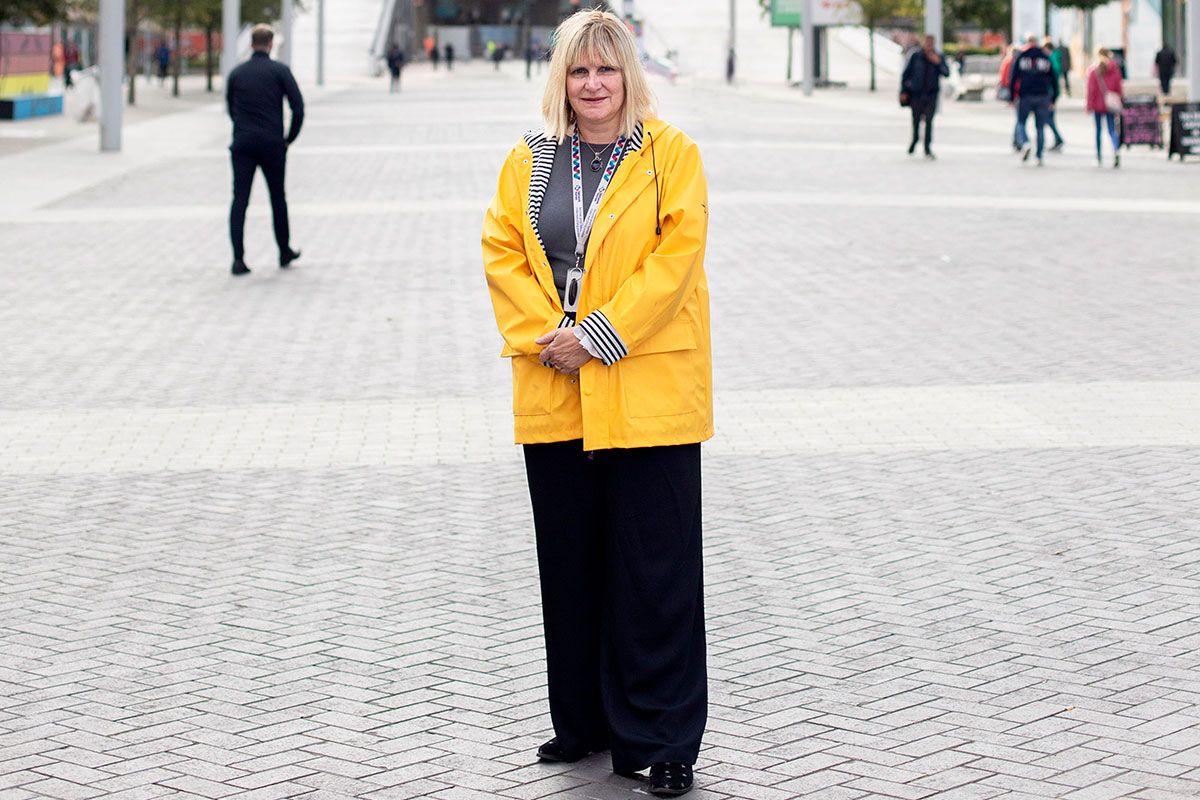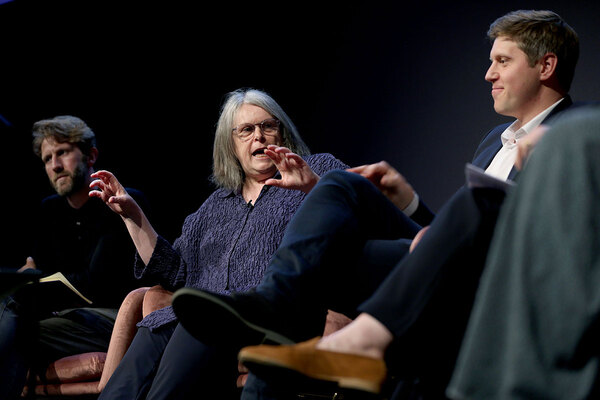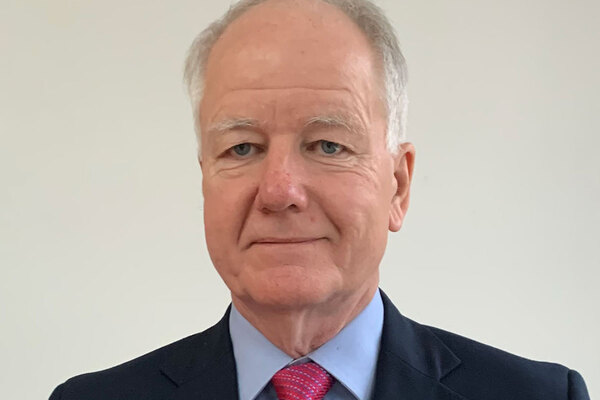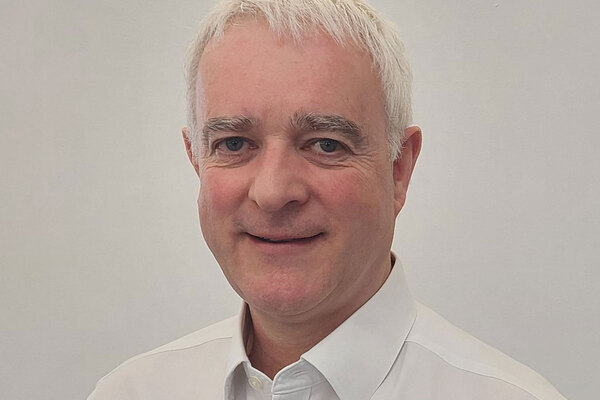You are viewing 1 of your 1 free articles
G15 chair Helen Evans interview: ‘There is definitely a lot more caution in boardrooms’
The G15 has its first female chair. Jack Simpson meets Helen Evans to talk about fire safety post-Grenfell and why London’s biggest landlords need to be about more than just volume housebuilding. Photography by Tim Foster
It is an interesting time to become the chair of the G15. To say it has been a challenging 12 months for London’s biggest housing associations would be an understatement.
With Brexit uncertainty contributing to a downturn in the capital’s housing market and ever-escalating fire safety costs hitting surpluses, most organisations are feeling the pinch. And this is impacting associations’ decision-making, Helen Evans, the new chair of the G15 explains.
“There is definitely a lot more caution in the boardrooms, and examination of risk. Risk appetite is definitely going down,” she says.
Ms Evans is four months into her role as G15 chair after taking over from Optivo chief executive Paul Hackett. The first female chair of the group that represents London’s 12 biggest housing associations, she takes on the role with pride, but also embarrassment that it has taken so long for a woman to secure the position.
“If all those years back as a housing officer in Hackney, I thought we would still be talking about the gender pay gap and diversity in senior positions, I would have been shocked,” she says, adding that improving diversity in G15 management roles will be a key aim.
Inside Housing meets Ms Evans in the Wembley office of Network Homes, the 20,000-home association she has led since 2011. During that time, she reshaped the association’s federal structure so it now runs as a single group.
Now comes a new challenge for Ms Evans: chairing a group that contains some of the biggest landlords in the country and trying to find consensus.
“There is always going to be a diversity of opinion. It takes a bit of negotiating,” she admits.
But she does have two things that are essential for any successful G15 chair: a passion for housing and a love of London. “What is great about London is you can come from every corner of the world and be welcomed,” she says.
Ms Evans herself is one of those for whom London is an adopted home. Until the age of eight she lived in the small Southern African country of Lesotho, where her dad worked for the British government.
After moving to Sussex as a teenager, she went to university to study politics and philosophy. The latter, she feels, has given her some important skills. “Philosophy helps you to look beyond the superficial,” she says. “One of the problems with our public discourse at the moment is everything is painted in very superficial terms. Everything is entirely good or entirely bad. We oversimplify things.”
One oversimplification that irks Ms Evans is the perception that big developing housing associations have lost their social purpose. “The perception is we are building luxury flats because somehow we have changed our world view,” she says.
The reality, she suggests, is sometimes harder to explain to the public: that these homes are being built to subsidise rented products.
“I would like to see people communicate in a more open and transparent way and engage with complexity,” she adds.
And Ms Evans definitely practices what she preaches.
She has an understated style of delivery and later describes herself as a “glass half empty person” at times – but her honesty is engaging. That honesty comes to the fore when she describes the number-one issue she believes the G15 faces: fire safety in the post-Grenfell climate.
The publication of Advice Note 14 in December 2018 – which called on owners to check their high rises for combustible materials and remove them if found – heightened the urgency of the issue for landlords.
The note is having a devastating effect on housing associations and leaseholders alike, as the growing cost of inspections and remediation impacts the resources available to fund new supply. Leaseholders are unable to sell, as mortgage lenders have turned off the tap to potential buyers.
As for G15 members, the group has calculated that 650 of its buildings are currently affected. The cost of remediation is already likely to be in the tens of millions.
“There is definitely a lot more caution in the boardrooms, and examination of risk. Risk appetite is definitely going down”
“We need to collaborate and think what is best to ensure buildings are safe,” says Ms Evans. “Do you find deficiencies and basically rebuild the buildings from the outside, or do you take another approach, and think about other ways of making it safe, such as installing sprinklers?”
Network has 58 buildings that are taller than 18m, nearly all of which use a cladding system. It is currently employing independent companies to carry out surveys on these buildings and has found fire safety issues with nearly every one.
On one development, the association is paying £30,000 a week for waking watch patrols.
And with costs running ever higher, associations are looking at different ways to recoup money. Leaseholders have so far been protected, but that could now change, as Network seeks legal advice on blocks it does not have strict liability for. Contractors are also being targeted for recompense by associations.
For Ms Evans, fire safety issues have raised major questions about the construction sector.
“How can it be that with a commissioning housing association, a developer, a contractor, two sets of employer’s agents, two sets of clerks of works, full insurance and full building control sign-off, that these buildings are so defective?”
And construction quality is influencing G15 members’ development strategies. Some are no longer pursuing Section 106 deals partly because of this, while others have become more discerning about the stock they take, handing back larger numbers of homes to builders if they are not up to scratch.
The sector could also be bracing for more change. Sir Martin Moore-Bick’s recommendations from the Grenfell Tower Inquiry suggest a raft of other reforms for landlords, such as the introduction of evacuation plans for all high rises and personal evacuation plans for vulnerable residents.
He also suggested that as part of the inquiry’s next phase he may look at introducing sprinklers into high-rise buildings and lowering the threshold of a high rise to 11m.
Biography
Helen Evans was originally born in Lesotho, Southern Africa, and spent the first eight years of her life there before moving to Sussex.
After studying politics and philosophy she started work as a temp in Southwark Council’s housing arm.
She has spent most of her career working for council’s across London, including Hackney and Brent. In 2001 she became managing director, eventually chief executive, of Brent’s ALMO and was a key part of overseeing the investment of decent homes money to upgrade thousands of council homes.
In 2011 she joined Network and quickly became chief executive, taking over from Tom Titherington who left after a disagreement with the board over Network’s direction.
As chief executive she oversaw the transformation of the group from a federal structure with six subsidiaries and more than 80 board members to how it is today where it operates as a group.
In July 2019, she became the first female chair of the G15. Her term will last for two years, when she will then be replaced by her current vice-president, and chief executive of Metropolitan Thames Valley, Geeta Nanda.
Network has decided to retrofit sprinklers into all of its blocks of 10 storeys or more. “Whether we want to reduce that to 18m will be a conversation we will have within the organisation and collectively with the G15,” she adds.
However, she warns against what impact the lowering of the threshold could have. “It would clearly require a significant stepping-up of resources if we were to extend,” she says. “We [the G15] currently have 1,145 buildings over 18m and if it is lowered that will take a long time and require a lot of money.”
But it is not only safety on which Ms Evans thinks the G15 needs to focus. The energy efficiency of its stock is also key. “The environment is rapidly increasing in profile for the G15,” she says. “If we are going to meet our emissions target it is not just about making new homes energy efficient but we have to think about existing stock.”
She gives the example of a development she recently visited where gas boilers were being installed. “By 2025 we have to stop using them. 2025 isn’t that far away and we are still putting them in – it has got to stop.”
“I would like to see people communicate in a more open and transparent way and engage with complexity”
She says that Network is currently developing “an image” for the type of buildings they would like to see as part of their stock, focusing on fuel efficiency. It has also started a review of previous approaches to understand what systems work best.
Ms Evans’ focus on housing management is understandable, given her career history. Before joining Network in 2011, she worked predominantly in local authority housing departments across London. Arguably her most notable role was at Brent Council where she was chief executive of its ALMO, Brent Housing Partnership, for eight years.
“When I came to Network I was greeted with the familiar in housing management challenges, but the development side of things was more unfamiliar,” she recalls.
But she has learned fast, as recent years have seen Network, like other London associations, scale up its development plans, and use the cross-subsidy model to fund the building of affordable homes. Network Homes plans to deliver 1,000 new homes each year. The G15 collectively aims to build more than 10,000 new homes each year.
However, that model has come under pressure recently, as a stagnating London market has slowed the pace of sales for associations, squeezing the money available for other developments.
Ms Evans confirms that all G15 associations expect to deliver what they have committed to in this financial year. But decisions being made now around pipelines could have a major impact on supply in two to three years’ time.
A number of London associations have altered their development plans: L&Q has paused all new developments, Notting Hill Genesis and Clarion have revealed plans to reduce the number of homes they build in the next few years, and Optivo is reducing its homes for sale.
“My risk appetite is reducing; we are treading a line,” Ms Evans says. “The board’s position is we don’t want to stop building, but its first duty is to ensure that the organisation is financially safe.”
On some projects, Network and other G15 members have sought support from the Greater London Authority (GLA). In April, Inside Housing revealed that the GLA had pledged an extra £200m to help associations navigate through Brexit uncertainties.
Ms Evans confirmed that Network has agreed additional funding from the GLA, which is allowing it to bring forward projects this year.
But while short-term help is good, Ms Evans is clear that long-term increased grant is what is needed most. “The cross-subsidy model is clearly reaching its limit. There is a need to change and put more money in,” she says.
“The cross-subsidy model is clearly reaching its limit. There is a need to change and put more money in”
And the situation could get worse depending on how and when the UK leaves the European Union.
“Brexit comes with a series of financial risks; the sales market will collapse, there will be inflation, construction costs inflation and there might be an impact on interest rates.”
And when that financial pressure is exerted, pipelines are the first to be hit, she adds.
But being a housing association is not just about being a developer, as Ms Evans is keen to point out: “We are partners to local authorities, we are providing supportive environments to those people that need support and may be vulnerable.”
As part of her plans to develop this side of the business, she wants to come up with an agreement between G15 members that sets out what every G15 tenant can expect from their landlord and the support they can provide.
This will include commitments around interventions in arrears prior to eviction and attempts to activate external support for those guilty of anti-social behaviour before intervention action is taken.
She says this is important because a warm and supportive place to live means people can fulfil their potential and overcome challenges around health and well-being.
And, when we ask her about her legacy as G15 chair, it is this image she wants to leave: “I hope when my time ends, the G15 is not seen as just volume house builders but as associations with social purpose, with a wider range of interest than just bricks and mortar.”
